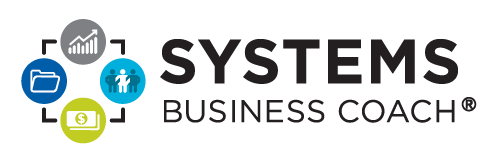Every small business has unique and specific key performance indicators (KPI’s) that need to be closely monitored.
- Am I profitable?
- Are my staff happy?
- Does Google know we exist?
- How many web viewers become paying customers?
- How much money do I have in the bank?
- What are my best sellers?
- How are our online reviews?
With so many moving pieces, having something in place to identify and monitor your core business performances is essential.
“Not everything that can be counted counts, and not everything that counts can be counted.”
Albert Einstein
For example, you can monitor employee satisfaction rates, unique inquiries, web stats, inventory, losses, growth, bank balances, referrals and productivity.
Monitoring your small business activities and results can be daunting! There are so many things to monitor, how do you know where to start?
First, you need to identify the top KPIs for your small business. When you have a good base, the rest of will fall into place!
Let’s start!
Which Key Performance Indicators are right for me?
Your Key Performance Indicators, or KPIs, are the most important things in your business. They monitor the success of your systems and goals.
Let’s say you set a goal to increase your website traffic. You decide to set up a marketing system to drive people to your website. If your website traffic increases, you know your marketing system is working. KPIs are the indicators that will tell you if you are on track. So in this case, website traffic would be your KPI.
Every business has different KPIs because each business has different priorities.
Say you own a restaurant and you had to transition online during the pandemic. You might set a KPI to track the effectiveness of your new online ads that show your take-out menu.
Whereas an e-commerce boutique may not need to set up ads to make sure customers know about their online presence. Instead, they might focus on tracking their customer engagement on their Instagram to increase their following.
Here is an example of what one of our clients is currently tracking:

Which KPIs are most important for small business?
Although KPIs vary from business to business, there are two areas you absolutely want to track— Customer Experience and Money.
1. Customer experience
The most telling KPI for small business is your customer experience.
It’s the best way to tell if what you are doing is working.
Without checking in, it could be months or years before a problem or, better yet, an opportunity could be uncovered.
9 out of 10 executives say customer experience is a critical differentiation for their business.*
Here’s a few options of KPIs you can use to track your customer experience:
- How are your sales? Sales is a great place to start monitoring customer experience. The more sales you have, the better your customer experience is.
- Are your customers engaged? To track engagement you can monitor how much time people spend on your website or how many times they interact with your social media.
- Are they completing the sale? Monitor how many customers fill their online shopping cart but don’t complete the purchase. If this is a high ratio, you might need to improve your customer experience.
2. Money
The other critical system that needs to be monitored is your money.
It’s too late when you bounce a check to know that your cash is running low.
I’m sure you didn’t start your business just for fun. Small business owners are looking to be profitable too— as they should be!
So what are some KPI’s you can use to monitor your money?
- Cost of Goods Sold Ratio. How big are your goods sold to goods purchased/made ratio? How often do you need to check it? When tracking this KPI, set a goal to increase your ratio!
- Spending. Are you actually making more money than you are spending? There are lots of small expenses small business owners overlook. Say those small monthly fees for your technology apps? Or the two specialty coffees you buy every Friday for you and your bookkeeper? The little things add up. Monitor them!
- ROI. Are you getting a solid return on your investment? Your ROI is a good indicator of your success. Business.org agrees that tracking your ROI takes out the guesswork and monitors your success over time.**

Think systems when you monitor
For every KPI in your small business, set up a system to go with it.
A system documents the steps you use to monitor your KPI’s. It’s a “how-to” system that allows you to track and adjust your KPI results. (You are monitoring your monitors!)
Monitoring those systems gives you peace of mind and allows you to make your company even stronger.
Take a moment now and write down the 5 most important things you need to monitor. These will kick off your monitoring system! (Hint: Make at least 2 of them a KPI to monitor Customer Experience and Money.)
We really can learn from experience, and when we take a disciplined approach to monitoring results, our systems development becomes an inspiring game of continuous improvement.
Reach your goals!
The goal in monitoring is to protect and grow the company you have worked so hard to build.
It’s more than just a dream, it is possible. You have every capability to reach your small business goals and build a company you are proud of.
I invite you to share this blog post with a like-minded business owner, we are in this together!
Enjoy your Entrepreneurial Journey!

Click here to share!
Sources
*Hinshaw, M. (2020, July 15). Customer Experience Analytics and Tracking: CX Metrics 101. CustomerThink. https://customerthink.com/customer-experience-analytics-and-tracking-cx-metrics-101-2/
** Pratt, M. (2017, December 3). How to Measure Your Return on Investments (ROI). Business.Org. https://www.business.org/finance/cost-management/how-to-measure-your-return-on-investments-roi/











